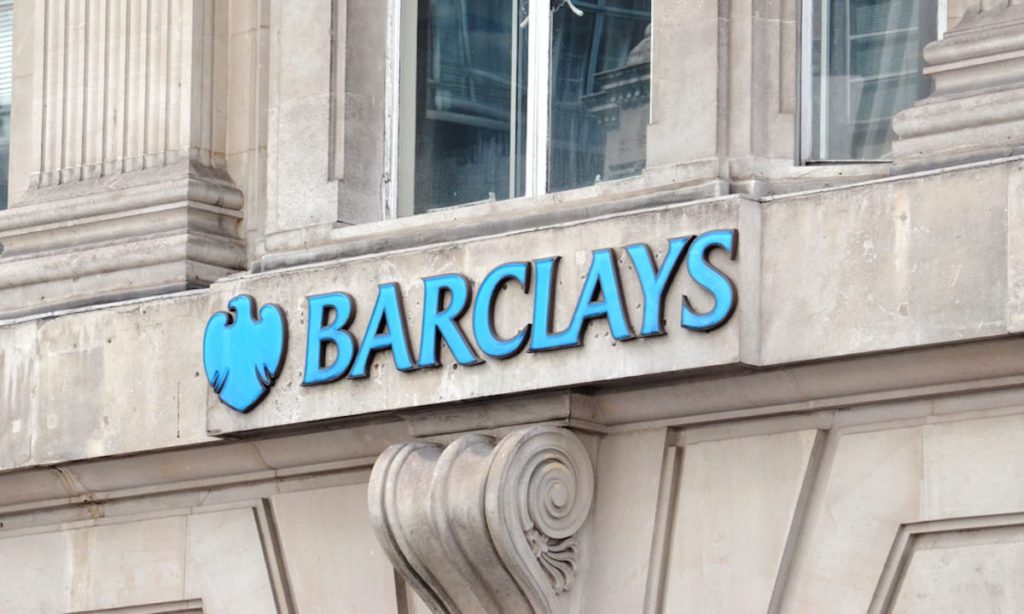Barclays Updates Sustainable Financing Target to $1 Trillion by 2030

- Investment of Barclays’ equity capital into climate-tech start-ups through its Sustainable Impact Capital portfolio to be ramped up to £500m by end of 2027
- Firm is well ahead of previously announced targets
- Next phase of investments will see enhanced focus on decarbonization technologies
Following the announcement in February 2022 of Barclays’ strategic priority to capture opportunities from the transition to a low-carbon economy, Barclays has been investing its own capital and facilitating sustainable finance at pace, continuing to deliver against its climate strategy as endorsed by shareholders this year.
Following substantial interest and demand, Barclays today announces that it is significantly increasing its own equity capital investment into global climate tech start-ups. The Group’s Sustainable Impact Capital investment mandate will increase from £175m by 2025, to £500m by 2027. The success of the investments to date means an increase in the investment mandate to £500m is required to allow Barclays to continue existing efforts and support new investments.
In the last two and a half years, Barclays has invested £84m into innovative start-ups, helping them to scale solutions to environmental challenges and fill their growth stage funding gaps. The Sustainable Impact Capital investments have supported many aspects of climate-tech innovation, from property retrofit solutions to long-duration energy storage and hydrogen technologies.
This next phase of Sustainable Impact Capital investments will see an enhanced focus on decarbonisation technologies that are enabling transition within carbon intensive sectors, particularly where Barclays has meaningful client exposure such as energy and power, real estate and transport. A particular focus will be on carbon capture and hydrogen technologies.
Barclays’ priority is to support its clients as they transition to a low carbon economy, providing advisory services and facilitating the finance needed to transform their businesses and scale essential green technologies. The Group has now surpassed its 2018 target to deliver £150bn of social and environmental financing by 2025 and is on track to meet its target to deliver £100bn of green finance well ahead of the 2030 target date.
As a result, and after a strategic review of the Group’s capabilities, market demand and growth opportunities, Barclays is announcing a new target to facilitate $1trn of Sustainable and Transition Financing between 2023 and the end of 2030. This encompasses the long-term Green, Social, Transition and broader Sustainability-linked Financing requirements of clients including corporates, governments and consumers. Financing of climate and environmental solutions including green mortgages, energy efficient technology and renewable energy, as well as financing for broader social and sustainability work, including sustainability-linked structures and areas such as affordable housing, will all count towards the target.
See related article: Barclays Pilots Greener Home Reward to Support Energy Efficiency-Related Home Improvements
Barclays will continue to invest in its product platform to facilitate this $1trn of financing, including expanding sustainable debt financing and equity capital markets activity. The Group will invest across business lines, geographies and sectors to further deepen relationships with customers and clients.
The Group recognises the need to assess finance eligibility and report progress transparently against this target. Barclays has set out the Green, Social, and broader Sustainability-linked Financing transactions eligible under the new target in a revised version of Barclays’ Sustainable Finance Framework. This is a clear set of criteria which reflects industry principles and market practice, updated with support from Sustainalytics. Progress against these targets will be published alongside our financial reporting. Barclays is developing a similar Transition Finance Framework, which will determine the eligibility of Transition transactions under this target, recognising that high-emitting sectors need significant financing to pivot their technology and infrastructure.
C.S. Venkatakrishnan, Barclays’ Group Chief Executive, said: C.S. Venkatakrishnan, Barclays’ Group Chief Executive, said: “Today’s announcements reinforce our group-wide strategic priority to capture the opportunities from the transition to a low-carbon economy. From facilitating financing for high-emitting sectors to adapt, to our own equity investments in climate-tech start-ups, to our support for customers and small businesses, Barclays’ diverse ecosystem has the capability and expertise to accelerate the transition across all aspects of the economies that we serve.”
Daniel Hanna, Barclays Global Head of Sustainable Finance for the Corporate and Investment Bank, said: “The final COP27 text stated that $4-6 trillion a year needs to be invested in renewables and decarbonisation solutions until 2030 – including investments in technology and infrastructure – to allow us to reach net-zero emissions by 2050. Barclays is uniquely positioned to help scale the new climate technologies that will decarbonise industries and create green jobs. Many of the technologies that are required to achieve Net Zero have not yet reached commercial scale. Barclays can play a critical role though leveraging our experience as an advisor, bank, and investor through our Sustainable Impact Capital Programme to help accelerate their development and adoption.“
Consistent with Barclays’ Purpose and approach to risk management, Barclays continues to focus on aligning its financing with the goals and timelines of the Paris Agreement, setting targets to reduce financed emissions for high emitting sectors.












